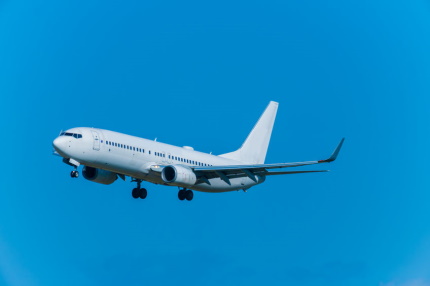When Boeing (BA) was building a seemingly dominant position in commercial aviation in the 1960s and 1970s, passengers’ faith in its relentless focus on quality inspired the slogan: “If it ain’t Boeing, I ain’t going.”
To say that the quality of Boeing’s products in recent decades has gone downhill is an understatement. That’s why, today, some passengers are saying: “If it is Boeing, I ain’t going.”
From an investment perspective, Boeing has a lot of work to do as a company if it is ever to regain its former glory. For me, that makes it uninvestable. I’d rather own the other company in the global aerospace duopoly, Europe’s Airbus SE (EADSY). Even before Boeing’s latest mishap, Airbus was clearly superior. Let me explain why.

Airbus Flies Higher Than Boeing
The diverging fortunes of the two aircraft manufacturers, Boeing and Airbus, was pointed out clearly in a Bloomberg article by Chris Bryant.
The pandemic and the resulting supply chain difficulties did slow Airbus’s advance down. Nevertheless, currently on just about every metric, Airbus is trouncing its U.S. rival:
- Deliveries: 623 to 461 in favor of Airbus.
- Order Backlog: 8,000 to 5,300 in favor of Airbus.
- Operating Profit ($ billion): Airbus +6, Boeing -2.
- Net cash/debt ($ billion): Airbus +7, Boeing – 39.
(This data comes from the Bloomberg article.)
The deliveries number for Airbus has been updated. It likely handed over 733 planes to customers last year, according to preliminary data from Aviation Flights Group. Of those, 579 were for its bestselling A320neo family of single-aisle jets. Widebody A350 aircraft accounted for 57 units, according to Aviation Flights Group. The company had targeted 720 deliveries for the year.
U.S. investors were blinded by Boeing’s success financially. But Airbus plodded along and concentrated on actual engineering, and not financial engineering like Boeing.
The 2010 launch by Airbus of a more fuel-efficient version of the single-aisle A320 known as the “neo” prompted Boeing to rush out its response: the 737 Max. This led to design compromises that may have played a role in the two 737 Max crashes in 2018 and 2019.
The grounding of the 737 Max helped Airbus add to its lead in single-aisle jets—the cash cow of the aviation industry, since it accounts for the vast majority of demand.
Airbus was expected to account for 60% of narrow-body plane deliveries until 2026. And that was before Boeing’s latest safety issues.
The company has already stated that it will significantly increase aircraft output in 2024 as Airbus ramps up production across its model range to meet surging demand.
Airbus also said that it plans to raise output on the A350 to 10 per month in 2026. The aircraft has been a major seller for the company this year, particularly the larger A350-1000 variant that can fly the longest routes, with Airbus approaching an unprecedented 100 individual orders for the plane.
While the recovery in long-haul air travel took more time after the pandemic than shorter routes, demand for trans-Atlantic flights and trips between Europe and Asia has surged in the last six months.
In addition, more airlines are ordering planes that can fly extended routes, in part because closed air spaces over Russia, Ukraine, and parts of the Middle East have made detour journeys more common.
Buy Airbus Stock
Airbus’s stock has recouped all the losses caused by the pandemic, with the shares touching a record high recently.
With Airbus’s A320 family of planes continuing to have a substantial lead in the highly valuable narrow-body market, and the A321XLR having the potential to open new long-range routes to low-cost carriers, Airbus is a strong buy.
Additionally, the company is well positioned to benefit from emerging-market growth in revenue passenger miles and a robust developed-market replacement cycle. With net cash likely to have exceeded €10 billion ($10.9 billion) at the end of December, it’s also on the cusp of being able to return more money to shareholders.
Prioritizing investors rather than investing in quality and resilience is what got Boeing into trouble. It spent around $44 billion on share repurchases between 2013 and 2019, according to data compiled by Bloomberg.
Airbus has always been far more conservative and likes to find other uses for its cash, including acquisitions. However, I now expect Airbus to splash more cash on its investors, rewarding them for their patience.
Buy EADSY anywhere below $40.
$91,761 Per Year From One Hated Stock?
Millions of Americans HATE this company. But it can generate you an up to $91,761 yearly income if you act immediately. Click here now before the cutoff.






